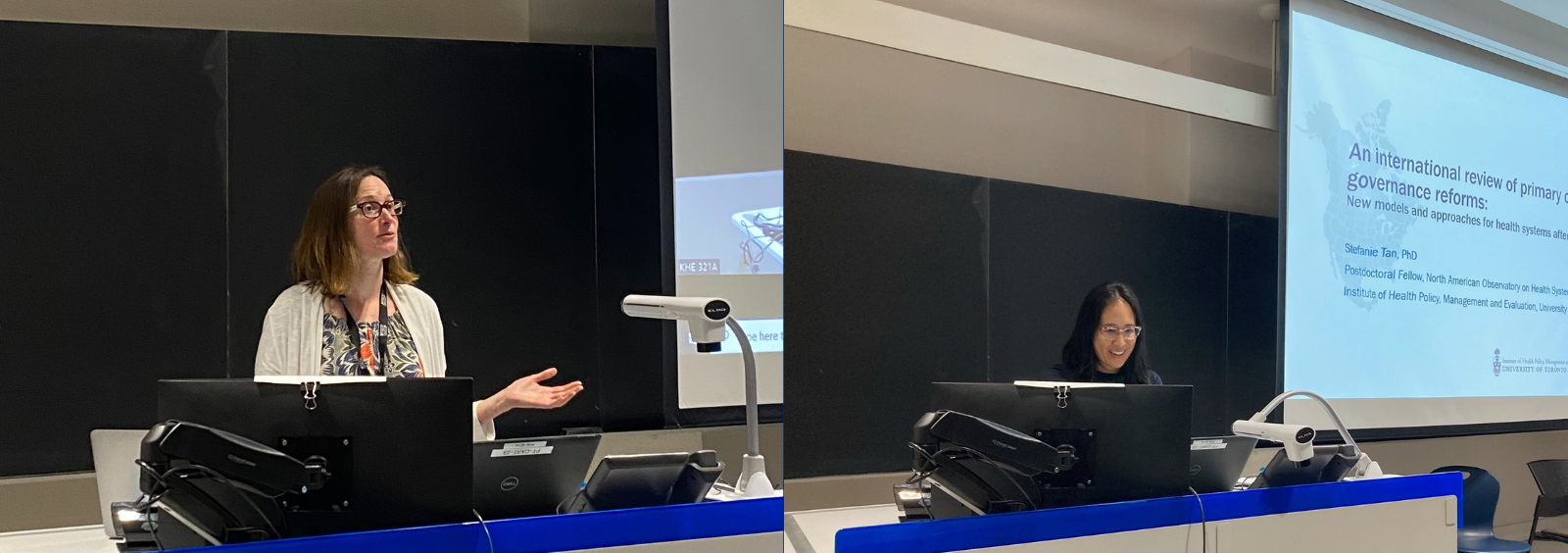
IfP Resilience Theme members lead session on health systems governance during COVID-19 at International Public Policy Association’s biannual conference
How did COVID-19 impact policy changes around health systems governance? Members of the Institute for Pandemics’ (IfP) Resilience Theme, along with their Australian partners, discussed the answers to this on June 27th where they led a panel session titled, “Health System Governance: In and Beyond COVID-19” at the 6th International Conference on Public Policy (ICPP6), hosted at Toronto Metropolitan University, June 27-29, 2023.
Resilience Theme Lead, Sara Allin, co-chaired the session with her University of Sydney partners, Carmen Huckel Schneider and James Gillespie. They moderated discussions around three crises of governance, 1) Policy-making at the centre, 2) Governance as a problem of systems integration and 3) Post-pandemic policy lessons and health reform.
During the first session, IfP Postdoctoral Fellow Stefanie Tan gave a talk titled, “An international review of primary care governance reforms: new models and approaches for health systems after Covid-19”. Dr. Tan presented results from her study comparing and characterizing primary care reforms, with a focus on health systems reforms that emerged during and since the COVID-19 pandemic. She noted reforms included “adapting the role of virtual care in primary care provision, payment reform, and pursuing integrated care reforms by refining team-based interprofessional care to improve pathways between physician practices and other providers/community clinics.”
Sara Allin chaired the second session on “COVID-19 and Health System Reform”. In this session, Dr. Allin’s partners Carmen Schneider and James Gillespie presented findings from a study reviewing experiences of healthcare commissioning services during the pandemic across four countries, including Canada. They noted that existing relationships were key to rapid commissioning but absent for highly technical services. Concerns of quality control, rorting and favoritism were a point of contention. Lastly, capacity and utility of roles and responsibilities were exposed and questioned.
In the third session of the panel, Sara Allin was a co-author of a presentation by UBC’s Peter Berman that compared the organization of key public health functions across four provinces in Canada. Here they presented changes in organization that were implemented in response to the COVID-19 crisis along with observations on their influence on responses results.
Stay tuned for future publications and webinars from this comparative health policy program of work that examines aspects of health systems governance to support strengthened pandemic resilience in Canada and globally.
